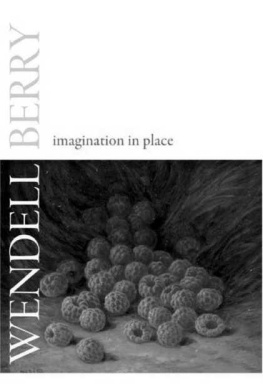In an age in which we often find ourselves at odds with nature, Stafford serves as a guide and interpreter listening for the way stories name a region, a country, and with familiarity and affection, explicating the terrain for those of us who have forgotten or never learned how.
FROM THE 1986 CITATION OF EXCELLENCE AWARDED BY THE WESTERN STATES BOOK AWARDS
Having Everything Right was a joy to read. Stafford is immensely talented with an unerring ear, the clearest vision, and a lovely exactitude of language. This book is sheer pleasure.
KATE WILHELM
Having Everything Right is not just an Indian place name but the summation of a way of living on earth in a spirit of harmony, gratitude, and adventure... (Staffords) poetic eye to nature and personal biography knit together themes and ideas, which range from the unique fragility of the earth to the breadth and courage of the human spirit.
LIBRARY JOURNAL
Kim Staffords senses are tuned like fine instruments to perceive, record, and draw memory and meaning from the quiet daily events that surround all of us, but are lost on most of us because we are still learning how to see and hear. These pages contain a record of what weve missed and an invitation to wake, and become whole.
ELIOT WIGGINTON
The energies and acuities that make Kim Staffords poetry so valuable are wonderfully at play here in his essays: an eager and dilated eye for lore, both human and natural; a belief in the wisdom of the stories people tell, and an enviable gift for telling his own; as well as a conviction that the more things change, the more important it is for us to apprentice ourselves to the humble things that continue and abide.
JAROLD RAMSEY
The effort registered here is not only to understand, as Thoreau put it, where we live and what we live for, but also to translate that comprehension into belonging; to achieve a connection with earth, time, history, and the universally common elements of human existence.
INDEPENDENT PUBLISHER 1986

ebook ISBN 9781940436418
Text copyright 1986, 2016 by Kim R. Stafford
Illustrations copyright 1986 by Barbara Stafford
Introduction copyright 2016 by Robert Michael Pyle
All rights reserved under International and Pan-American Copyright Conventions. No part of this book may be used or reproduced in any manner whatsoever without written permission from the publisher, except in the case of brief quotations embodied in critical articles and reviews.
Published by Confluence Press 1986
Published by Pharos Editions 2016
Out of This World with Chaucer and the Astronauts and a shorter version of Local Character first appeared in Sweet Reason, a publication by the Oregon Committee for the Humanities. A shorter version of The Separate Hearth first appeared in Northwest Magazine.
The author thanks the National Endowment for the Arts, a federal agency, for a grant which assisted in the writing of this book.
Library of Congress Cataloging-in-Publication Data is available
Cover and interior design by Faceout Studio

PHAROS EDITIONS
An Imprint of Counterpoint
2560 Ninth Street, Suite 318
Berkeley, CA 94710
www.pharoseditions.com
www.counterpointpress.com
Distributed by Publishers Group West
10 9 8 7 6 5 4 3 2 1



A Rooted Companionship with Kim Stafford
Few things have made me as plainly, outright happy on first hearing about them as the word from Pharos publisher Harry Kirchner that he would be bringing Kim Staffords book Having Everything Right back into print.
Some books just dont belong out of print. Not that there arent many, many titles languishing in out-of-print land that, in a smart and just world, would remain available as bright new books as well as library titles and twice-read finds in secondhand bookstores. But this bookit is simply the best volume of Northwest essays I know, and its out-of-print status was awfully hard to take. So, bravo, Harry and Pharos. And as for you readers? Celebrate!
Sometimes, Kim writes, in his essay A Few Miles Short of Wisdom, stories from thoughtful travelers you trust, or some old book you believe, or the minds own credulous pilgrim named Imagination will make a place dazzle in anticipation. Well, thats true. And Having Everything Right is one old book that I believe. When I reread it, or even think about it, the Northwest writ large fairly dazzles in my anticipation.
And an old book it is, by some measures. While still just a lad compared to the great Northwest essayists that went beforesay, Murray Morgan or Stewart HolbrookKim saw this book first published by Confluence Press in 1986: the same year my own book Wintergreen came out, just four years before Tim Egans The Good Rain, and five prior to Sallie Tisdales Stepping Westward. It is no mystery that these four titles have stridden together across the years since, sharing space in many a review, reading list, and syllabus together, as complementary windows on a region defined as much by its writers as its rain.
But even in its natural company, Kims book stands apart. He goes out on adventure a dozen times plus, and from each outing fetches back a field report, a ships log, a dispatch from the frontier, a libretto from the human heart in all its muddling variety, through all of which he builds his own cosmologyand his highly personal approach to life, land, and languageright before our eyes. And, through that, we grow. We cant help it, any more than we can help peeking ahead to see what the next adventure will be. But we hold back after all, and take them in turn, as they come. This book cannot be skimmed. Almost every sentence glimmers and glows with the shiny details of What Kim Finds Out There, and with lapidary words to match.
Neither of these traits is really surprising. In The Separate Hearth, one of the truly great kids-in-nature works (pre-Geography of Childhood, pre-The Thunder Tree, way-pre-Last Child in the Woods), Kim testifies for the kind of freedom, encouragement, and self-organizing wanderment and wonderment that rendered his childhood the perfect springboard for seeking the way toward having things right forever after. Plus, he sprang from a house of poetry, and later lodged in an academic program of Medieval Literature, studying the very origins of our storytelling tools and traditions. None of this can have impeded his wish or ability to meet the very World Itself with words that might possibly do it justice.
Time after time I have taught with this book. Ive brought several of the essays to my students, and the whole book, when there was time. I sometimes put forth A Few Miles Short of Wisdom or The Barn and the Bees along with Brian Doyles Van (about Van Morrison) as examples of The Perfect Essay: Now tell me why, I assign. But in dozens of classrooms and workshops I have read and parsed the books introduction, Naming the Northwest. This short essay is a small masterpiece of concision, precision, and incision. It is also witty, elegiac, and wise. Kim contrasts the old ways of naming the landscape drawn from its own features and stories, as practiced by the Kwakiutl: Two Round Things Meeting Now and Then, Having Coho Salmon, Place Where












